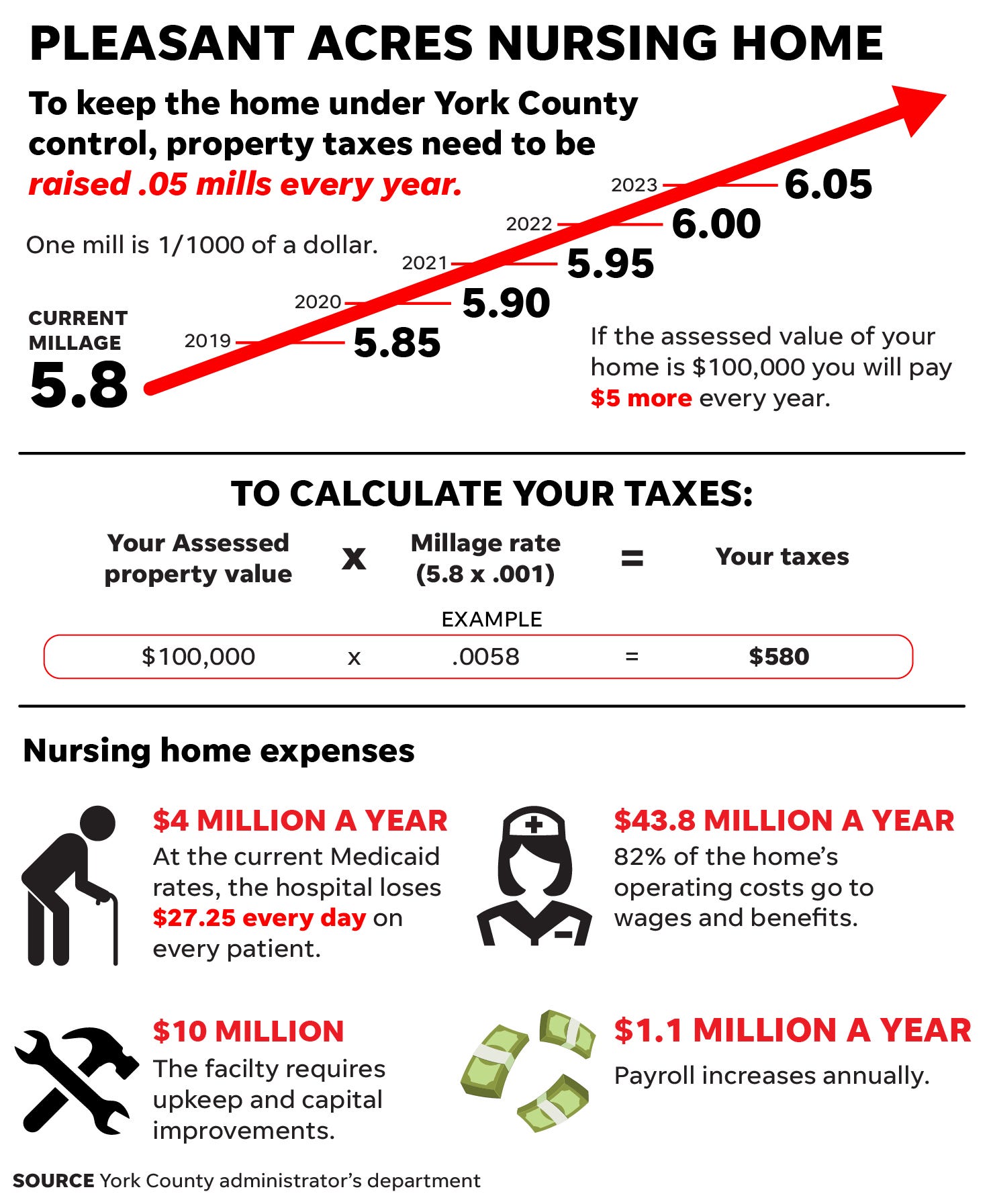What can save Pleasant Acres nursing home? Only a tax hike, York County official says
Keeping the home under county control will cost each taxpayer $5 this year, $10 the next, $15 the next ... you get the idea
 Rick Lee
Rick LeeIs the only way to keep Pleasant Acres Nursing and Rehabilitation Center open and under county control by raising taxes?
York County administrator Mark Derr, the person who keeps the closest eye on the county budget, pondered that question for a heartbeat.
"Yes," he said.

Derr can go on at length about the multi-million dollar chasm between what the county nursing home takes in as revenue -- including government funding -- and its expenses.
But bottom line, he said, is that property taxes will have to be increased every year to keep the county home open as a taxpayer-owned nonprofit.

Here's the breakdown:
- The 375-bed facility makes no profit because it is supported almost primarily by Medicaid.
- At the current Medicaid rate, the home loses $27.25 per patient per day, or $4 million a year.
- Around 82 percent of the home's $43.8 million in operating costs goes to salaries, wages and employee benefits.
- That payroll is currently scheduled to increase by $1.1 million next year and continue to increase into the future, depending on labor contracts.
- On top of the per-patient operating loss, the facility currently requires an additional $10 million in one-time costs for upkeep and capital improvements.
Source: York County administrator's department
The York County commissioners have held two town hall meetings to hear from the public and the home employees about the possibility of selling the home to a private owner.
The next and final town hall is scheduled for 6:30 p.m., March 27, at the Central York High School auditorium at 601 Mundis Mill Road in Springettsbury Township.
Here are some of the concerns that have been raised:
- If the home is sold, the county will have no authority whatsoever over its operations.
- If privatized, the new owner cannot evict anyone without finding another home that will take them.
- However, the commissioners cannot promise that no one will be turned away from the home.
- The commissioners also cannot promise the employees their jobs will remain if the home is sold.
The only viable way of keeping the home under county control will be to raise taxes.
- York County has $27.6 billion in taxable real estate. The current tax rate is 5.8 mills, or $580 on a $100,000 property.
- Raising the tax rate by 0.05 of a mill, or an additional $5 on top of the current taxes on that $100,000 property, would offset the home's expenditures for next year.
- That 0.05 increase would have to be an annually recurring tax increase to keep up with the nursing home expenses that will rise yearly – wages by 3 percent and benefits (including health care) at 7 to 8 percent.
Ways to cut expenditures at the home could include:
- Cutting the staff. However, the state requires a certain ratio of nurses to patients and the home already is understaffed, requiring the home to contract for outside nurses.
- Cutting wages. The home already has a staff retention problem and ongoing unfulfilled nursing positions. Lowering wages would make it harder to attract new employees and likely would exacerbate the retention problem.
- Cutting benefits. Benefits are negotiated through the nursing home staff's union. Again, a move that would not help to attract new employees even if an agreement could be reached with the union.
Source: York County administrator's department
So, put it to a vote?
The commissioners really have no way of putting the question of privatizing the county home before the voters to get their opinions.
By law, it cannot be put on a ballot as a referendum question or even as a nonbinding advisory question.
So, the commissioners are left with the only tactic they have been following to gauge public opinion about the home, and that is the series of town hall meetings where the public can voice their concerns.